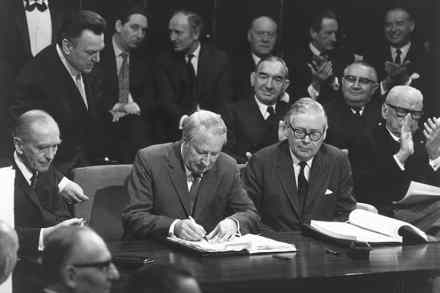The existential threat facing the Tory party
As James Kirkup says, some Tories are beginning to wonder whether it might be better for them to lose the next election. But defeat at the next election could see the Tories locked out of power for a generation. The local elections and the opinion polls suggest that the most likely result of the next election is not a Labour majority, but some kind of anti-Tory majority. But, as I say in the Times today, the Tories have more to fear from this kind of governing arrangement than an outright Labour victory. Why? Because it is more likely to lead to electoral reform. Defeat at the next election could see










